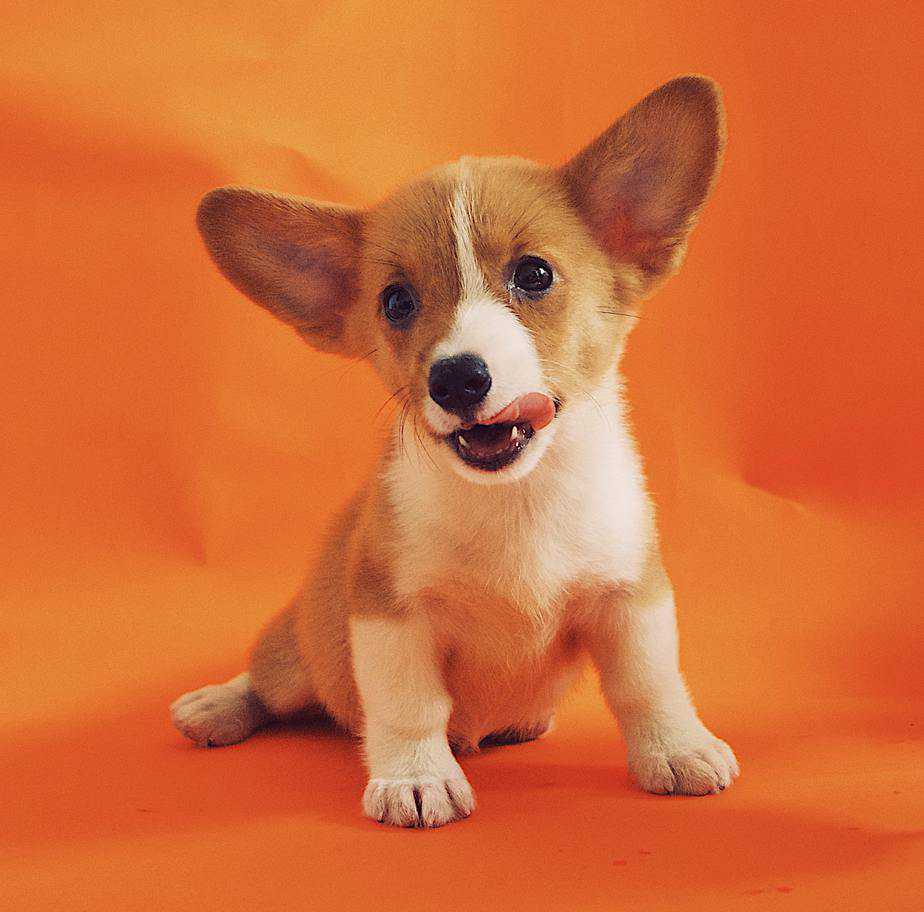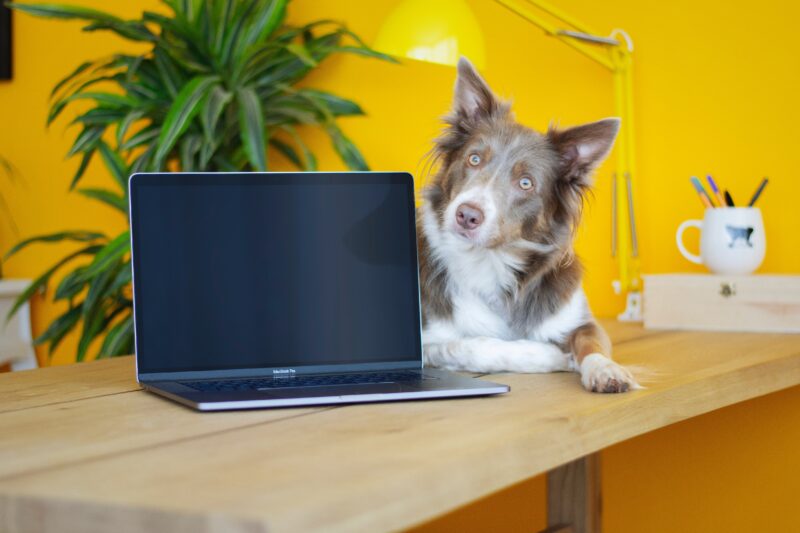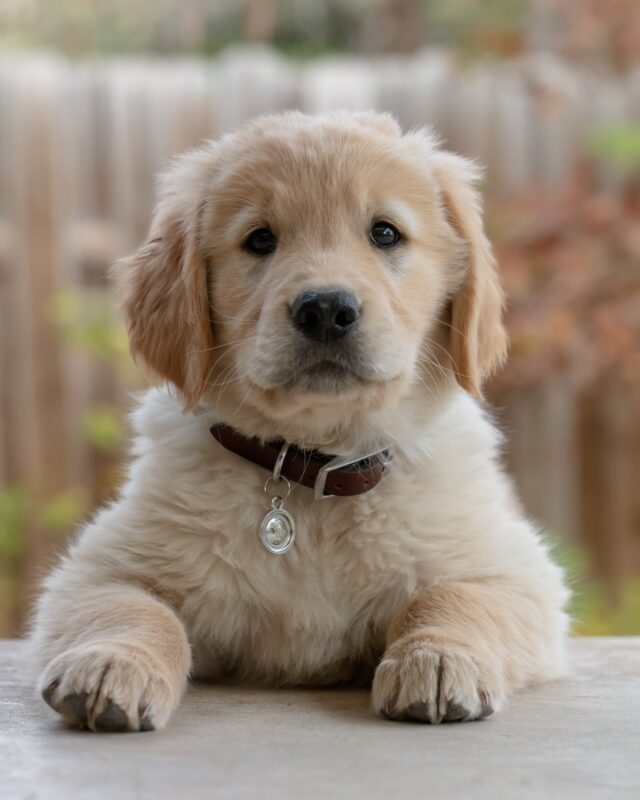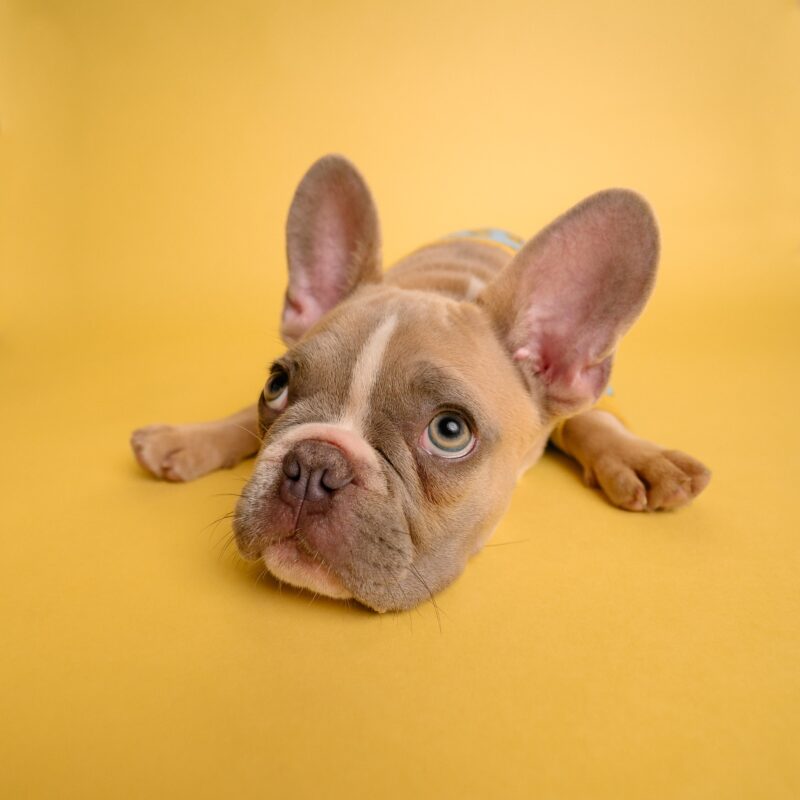Puppy Hiccups are undeniably cute – but is your dog alright?
We’re going to cover everything you need to know if your puppy has hiccups, including the main causes and what you should watch out for.
When Should I Be Concerned?
Hiccups are a common condition for puppies that is usually harmless and rarely serious, just like with us humans. As long as they don’t go on too long, feel free to enjoy the cuteness – especially if, like mine, your pup sometimes loses his balance and falls over!
Don’t worry if the hiccups last less than an hour. If the condition lasts much longer or your puppy keeps getting hiccups, it is recommended to consult your vet. It’s not unusual for a puppy to get hiccups repeatedly, but it’s probably best to get him checked out to be sure if it seems excessive.
There are medications that your vet can recommend if the problem persists. They will help relax the muscles of the diaphragm.
Do be aware that dog hiccups can sometimes occur when combined with other symptoms of heart disease, hypothermia, asthma or other respiratory conditions.
You should definitely take puppies to see a vet if they also have any of the following symptoms:
- Fainting
- Swollen belly
- Low body temperature
- Irregular breathing pattern / trouble breathing
Even if your dog hiccups for longer than an hour there’s a good chance it’s nothing to be worried about, and checking with your vet should be thought of as just a precaution to safeguard your dog’s health.
What Are Hiccups?
Hiccups are when the diaphragm muscle spasms repeatedly. As it contracts it causes the vocals cords to close rapidly, which makes the ‘hic’ sound.
The medical name for hiccups, or hiccoughs as they are sometimes known, is ‘singultus’, from the latin word ‘singult’, meaning ‘gasp’.
Why Does My Puppy Get Hiccups?
There can be various causes of hiccups, but the most likely are:
- Eating Too Quickly: My dog loves food, and this was the main cause of his hiccups when he was a pup. He simply wanted to hold the world record for transference of food from bowl to stomach, and this meant the diaphragm was having trouble regulating the amount of air coming in and out. Some dog breeds have more of a tendency to eat quickly than others.
- Excitement: Almost all puppies get very excited very quickly, and the irregular breathing patterns resulting from this can again cause the diaphragm some trouble.
- Stress: If your puppy is a very recent addition to your family, it is possible he’s feeling a little nervous about his change in circumstances, which can also result in an abnormal breathing pattern (although lip-licking or yawning is more common). This is nothing to worry about and is completely normal: just continue to make him feel loved and welcome and he’ll feel right at home in no time.
Some Other Theories On Why Puppies Get Hiccups
- Some vets believe they could be part of a long list of “growing pains” that some dogs must endure during the process of physical and mental maturation. Seizures begin to subside with age, and will normally completely disappear when a puppy reaches the age of eight months to one year.
- Other vets claim it’s an archetype reaction that many of them have experienced since before they were born. It was a way for them to workout their lungs and empowers the muscles of their esophagus, while they were literally ‘underwater’. Most young dogs stop once their lungs adapt to oxygen and a drier environment.
Adult dogs can also get hiccups, but it is not as common as it is with puppies (although with the speed my dog eats I’m surprised he doesn’t get them after every meal!)
Why Does My Dog Get The Hiccups When He Wakes Up?
Aside from eating their food too quickly, puppies that get hiccups will most often have them after waking up in the morning, or after a nap.
While it’s not exactly clear what the reason for this is, it’s likely that it’s tied in to another major cause: excitement. Your puppy is probably just overly excited to be alive!
Another possibility is that he ate his dinner too quickly the night before and irritated his throat and diaphragm a little. Encourage him to drink water after eating to soothe his throat, and consider getting him a slow feeder if he continues to eat much too fast as he gets older.
Why Does My Dog Get The Hiccups While Sleeping?
Yes, puppies can also hiccup while sleeping! Adorable!
Even more adorable is the most likely cause: he’s having a really vivid dream causing lots of excitement (did you see his legs moving or was he “sleep-talking”?) The excitement made his breathing pattern change suddenly, sending the diaphragm into spasm.
He may also start breathing very fast while asleep for the same reason.
Eating or drinking a lot, or too quickly, before he goes to bed means there’s a higher change of this happening.
Your puppy may also get the hiccups while sleeping for one of the same reasons as when he wakes up in the morning: he didn’t chew his food properly the night before and has caused some irritation to his throat and diaphragm.
How To Stop Puppy Hiccups
As a rule, it is better not to do anything. The human stress on display often exacerbates a puppy’s anxiety. However, some find It difficult to do nothing when they feel that their pet is in trouble. You can try the following suggestions if your puppy hiccups a lot.
The goal is simply to change your puppy’s breathing rate. This can be done by distracting them and giving them something different to focus on.
- Introducing a ball or squeaky toy may be enough to get them to return to normal breathing.
- If this doesn’t work, practice some dog training exercises with them. Something new you’ve been working on together is best so it demands their full concentration.
- Offering food can also help change their breathing pattern. Go for soft foods that your dog can eat with little effort, rather than solid, chewy foods that might cause him to choke.
- Similarly, drinking water can have a positive effect.
- Take your puppy for a gentle walk, ideally to somewhere he hasn’t been before.
- If over excitement is the reason your dog gets hiccups, help him into a calmer state. Massaging your puppy, rather than arousing more excitement, can help him relax and start breathing normally. Massage his belly just below the rib cage to help sooth the diaphragm.
- The same as with humans, something that surprises him enough to make him jump can ‘scare’ them away! Try quickly but gently touching his side when he’s not expecting it – just above the stomach tends to work best.
Final Thoughts
Whatever concerns you have with your dog or puppy, it is always advisable to keep calm. Hiccups are usually as normal for your dog or puppy as they are for you. But you should keep in mind the duration and the frequency with which your puppy gets them.
If they last for much longer than an hour, or he seems to get them excessively with no apparent cause, it is best to report it to your vet just to be sure your dog is in good health.
If your puppy often gets hiccups you needn't be too concerned. As your dog gets older they will likely become less frequent before disappearing altogether, depending on the cause. Try to figure out the reason for your puppy's hiccuping to set your mind at ease. Puppy hiccups are most commonly caused by eating or drinking too fast, which leads to air being ingested at the same time. Another reason could be over excitement. Sometimes stress can bring on a bout of hiccups too, but this is less likely. Your puppy probably has hiccups at night because they're having an exciting dream! This can make their breathing pattern change quickly, which in turn causes the diaphragm to spasm. Eating or drinking too quickly just before bedtime makes this even more likely to happen. You can try these things to make your pup's hiccups disappear: Puppies normally grow out of hiccups after about 4 -6 months, although it is not unusual for adult dogs to have them occasionally too. Puppy Hiccups FAQs
Is it bad if my puppy gets hiccups a lot?
Why does my puppy have hiccups a lot?
Why does my puppy get hiccups at night?
How do you get rid of puppy hiccups?
1. Distraction - play a game with him or run through some training exercises together. Nothing that will cause too much excitement.
2. Give him some water - this can help 'reset' your puppy's breathing pattern.
3. Take him for a walk - some light exercise may be beneficial, but again, don't make him over excited.
4. Calm your puppy with a massage - get him into a calm, relaxed state.
5. Surprise him with a quick, unexpected touch - just like with humans, hiccups can be 'scared' away!At what age do puppies stop getting hiccups?
Feature image by Alvan Nee







